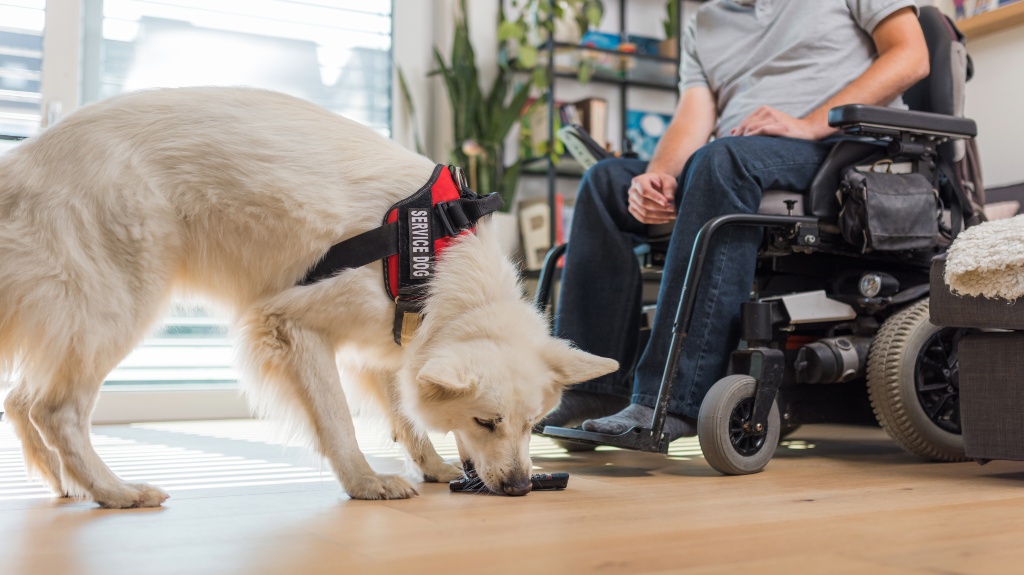Service Dogs and VA Disability Compensation: What You Need to Know

For many veterans, service dogs provide invaluable assistance, helping manage both physical and mental health conditions. These specially trained animals can significantly improve the quality of life for veterans coping with disabilities, including PTSD, mobility impairments, and more. But how do service dogs factor into VA disability compensation? Below, we’ll explore how veterans with service dogs can receive support from the VA and how these animals can impact disability claims.
How the VA Supports Veterans with Service Dogs
The Department of Veterans Affairs (VA) recognizes the important role that service dogs play in the lives of veterans. While the VA doesn’t directly provide service dogs, they offer several forms of support for veterans who require these animals to manage disabilities.
VA-Funded Service Dog Benefits
If a veteran is eligible for a service dog, the VA can provide certain benefits, including veterinary care and equipment, to ensure the dog’s ongoing health and functionality. Some of these benefits include:
- Veterinary services: Preventive care, medications, and emergency treatment.
- Equipment: Items like harnesses or leashes that are essential for the service dog’s work.
- Transportation costs: In some cases, the VA may cover transportation for the dog to and from necessary medical care.
These benefits aim to alleviate the financial burden associated with owning a service dog, ensuring that veterans can continue to rely on their animal’s support.
Can Service Dogs Affect VA Disability Claims?
Many veterans wonder whether having a service dog can influence their VA disability claims. While service dogs can improve daily life, their presence does not directly affect the disability rating or compensation level. Here’s what veterans should understand about this connection:
Service Dogs and Disability Ratings
VA disability ratings are based on how a veteran’s service-connected conditions impair their ability to work and perform daily activities. While a service dog may help manage symptoms, it does not change the underlying severity of a veteran’s condition. Therefore, the use of a service dog is not factored into the VA’s calculation of a veteran’s disability rating.
For example, a veteran with PTSD who uses a service dog for emotional support would still be rated based on the severity of their PTSD symptoms, not on the assistance provided by the service dog. The same applies to veterans with mobility impairments or other physical conditions.
Important Documentation for VA Claims
Although a service dog doesn’t influence a disability rating, having thorough documentation of how your condition affects your daily life is crucial for your VA claim. This is especially true for veterans with invisible disabilities like PTSD, where a service dog plays a significant role in daily functioning. Medical records, personal statements, and mental health evaluations are all important pieces of evidence to include in your disability claim.
How to Qualify for a VA-Recognized Service Dog
Qualifying for a VA-recognized service dog involves several steps. Veterans need to undergo a comprehensive assessment by a VA clinician, who will determine whether a service dog is medically necessary. If the clinician approves the request, the veteran will then work with accredited organizations to obtain a service dog specifically trained to assist with their disability.
Get the Support You Deserve
Service dogs are a lifeline for many veterans, offering crucial assistance for both physical and mental health conditions. While these animals do not directly impact VA disability compensation, the support provided by the VA can make it easier to manage the responsibilities of caring for a service dog. If you’re unsure how a service dog fits into your disability claim or have questions about your VA benefits, contact VA Benefits Attorneys Powered by Tabak Law today. Our team can help guide you through the process and ensure that your rights are fully protected.







